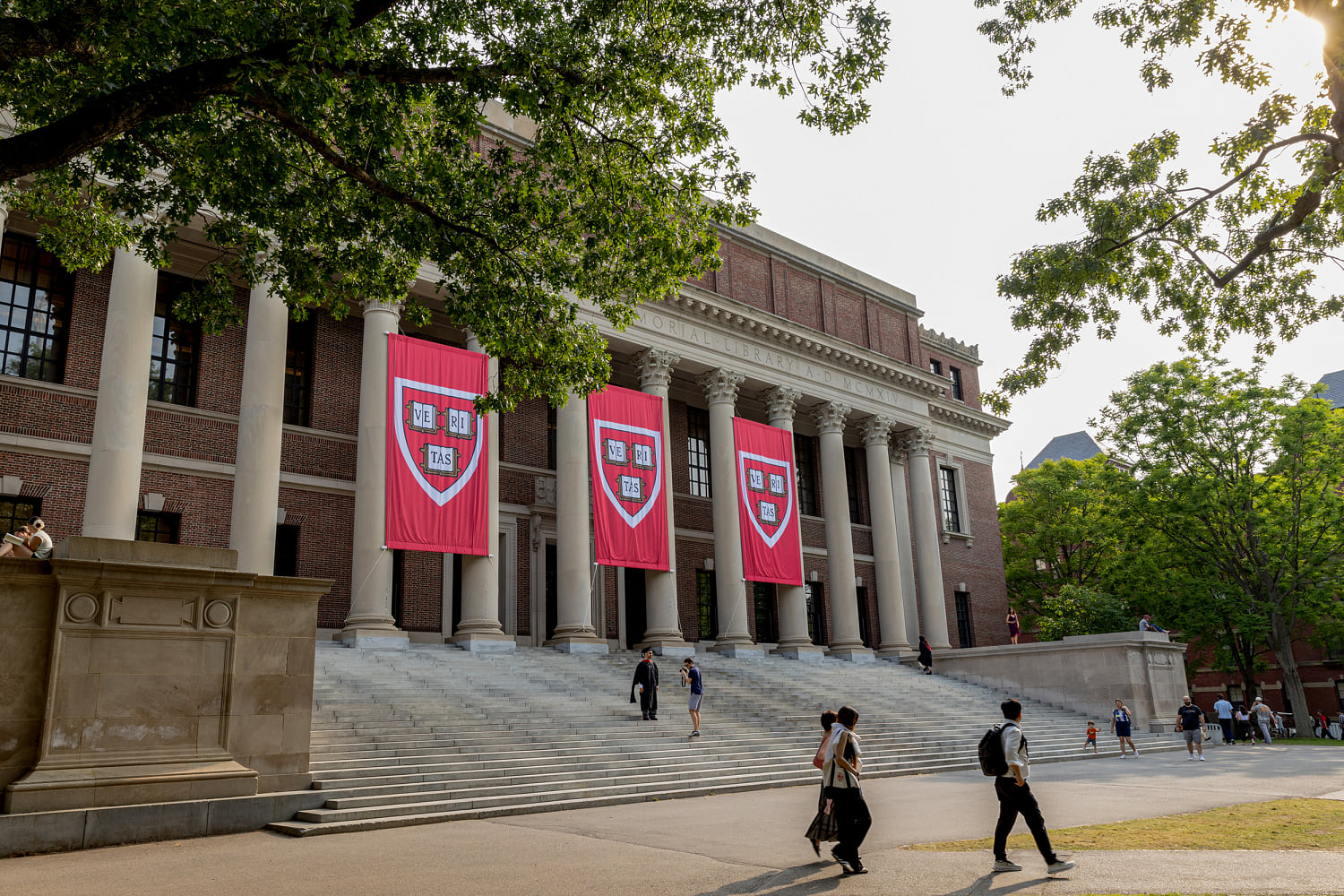

Twenty four universities, including five Ivy League schools, and more than 12,000 alumni took measures to back Harvard University in its legal battle against the Trump administration, which has threatened it with slashing billions of dollars in grants.
Princeton, Yale, Dartmouth, Brown and the University of Pennsylvania, along with several other schools, filed an amicus brief on Monday in support of the nation’s oldest university, arguing that the funding freeze would impact more than just Harvard, due to the interconnectedness of scientific research, and would ultimately hinder American innovation and economic growth.
Also on Monday, the group of 12,041 Harvard alumni filed a separate brief describing the withholding of funds as a “reckless and unlawful” attempt to assert control over the school and other higher education institutions.
“The escalating campaign against Harvard threatens the very foundation of who we are as a nation,” the alumni said in the brief. “We embrace our responsibility to stand up for our freedoms and values, to safeguard liberty and democracy, and to serve as bulwarks against these threats to the safety and well-being of all.”
The amicus briefs aim to provide expertise or insight to the court, but the schools and individuals are not parties in the lawsuit itself.
The filings come after Harvard in April rejected the government’s list of 10 demands, including auditing viewpoints of the student body, a move that the administration says is aimed at addressing antisemitism on campus. After the government threatened to freeze $2.2 billion in multiyear grants and $60 million “in multi-year contract value,” Harvard hit back with a lawsuit.
The brief filed by the universities included other prominent institutions like Georgetown, Johns Hopkins and the Massachusetts Institute of Technology. The only Ivy League schools missing were Cornell and Columbia universities.
The schools argued that the partnership between the government and academia has long led to critical advancements, from the The Human Genome Project to the Covid-19 vaccine. And that funding cuts to one school could endanger research at others. Harvard, MIT and Princeton, for example, have received funding from the National Institutes of Health for a project that could potentially yield tools to treat Alzheimer’s disease.
“The work cannot continue at individual sites; MIT cannot use machine learning to uncover patterns, for example, without data from Princeton and Harvard,” the brief said.
The universities said in the brief that the cuts would only cause more harm to the United States’ ability to compete in science and academia.
“These cuts to research funding risk a future where the next pathbreaking innovation — whether it is a cure for cancer or Alzheimer’s, a military technology, or the next Internet — is discovered beyond our shores, if at all,” the brief said.
Sally Kornbluth, president of MIT, said in a letter to the school’s community that it was critical to make a legal argument against the funding cuts.
“Although the value to the public of federally funded university research feels obvious to us at MIT, we felt compelled to make the case for its countless benefits to the court and, in effect, to the American people,” Kornbluth said.
The Harvard alumni filed their brief in support of the school’s motion for a summary judgement submitted last week. If granted, the summary judgment would allow the court to decide the case without a full trial. The alumni, which include comedian Conan O’Brien, author Margaret E. Atwood and Sen. Tim Kaine, D-Va., wrote in the brief that the administration’s “end goal is to narrow our freedoms to learn, teach, think, and act, and to claim for itself the right to dictate who may enjoy those freedoms.”
The alumni also slammed the administration’s concerns over antisemitism as rationale over the funding freeze.
“We unequivocally condemn antisemitism and every other form of discrimination and hate, which have no place at Harvard or anywhere else in our society,” the alumni said in its brief. “Yet charges of antisemitism — particularly without due process and proper bases and findings by the Government — should not be used as a pretext for the illegal and unconstitutional punishment and takeover of an academic institution by the Government.”
The government’s demands on Harvard, the alumni said in the brief, “have little or nothing to do with combating antisemitism” or any other form of discrimination on campus.
“Rather, its demands stifle the very engagement, teaching, and research that bring communities together, heighten our understanding of one another, and advance solutions that directly benefit us all,” the brief said.
The show of legal support comes amid a monthslong back-and-forth between the administration and Harvard University. Most recently, the school sued the administration after Trump issued a proclamation last week denying visas for foreign students trying to come to the U.S. to attend the prestigious school.
 Latest World Breaking News Online News Portal
Latest World Breaking News Online News Portal






